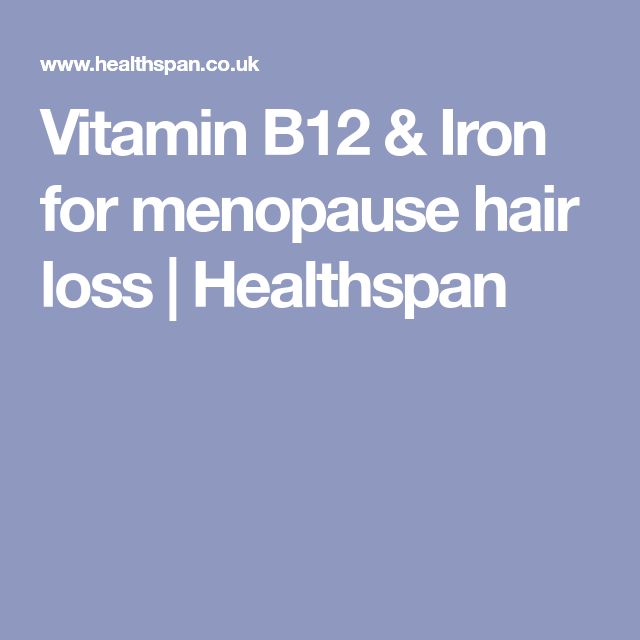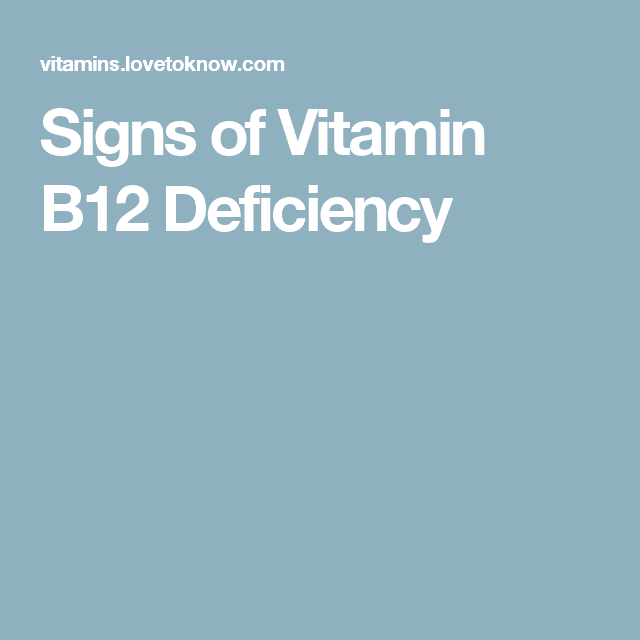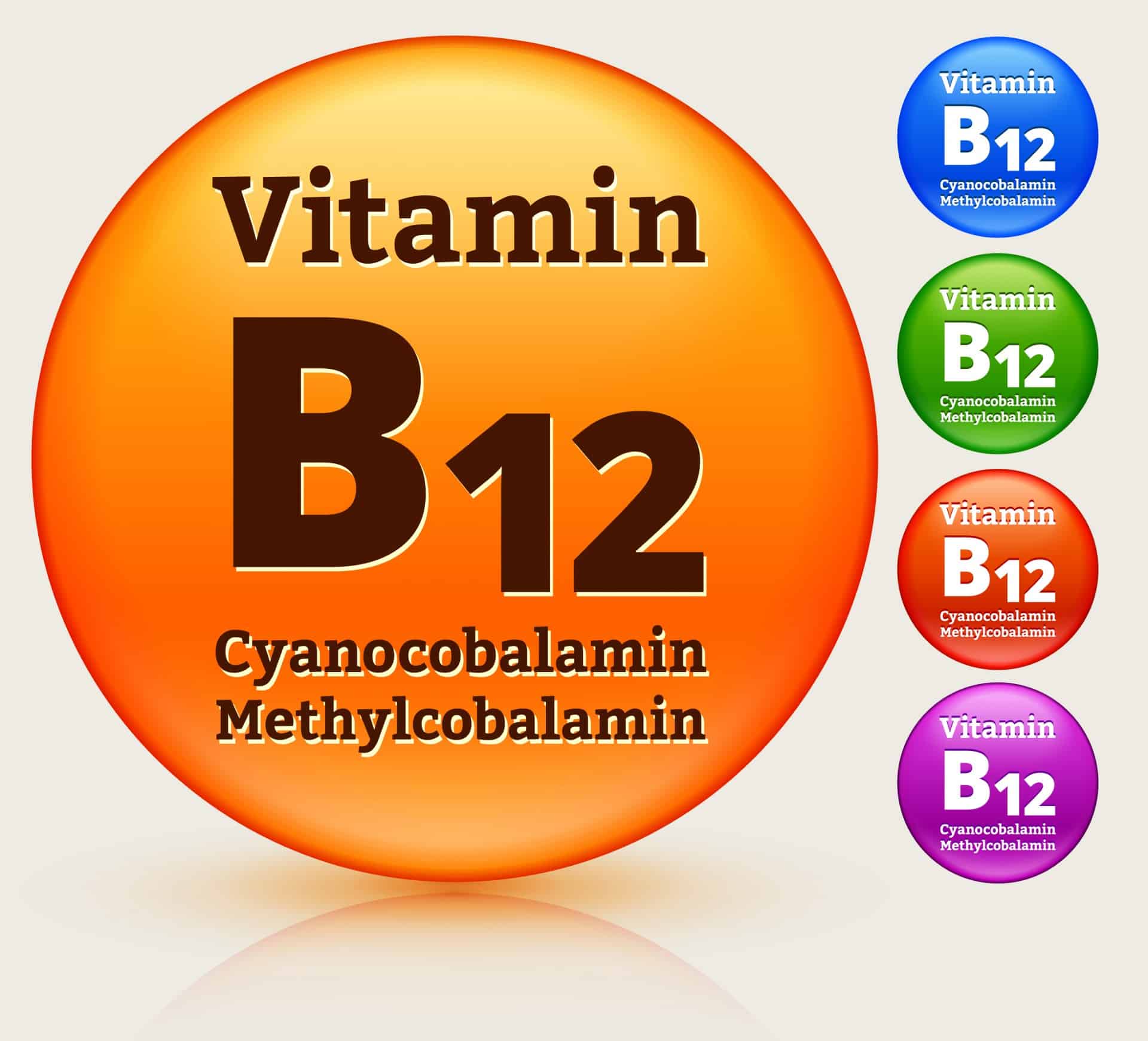What Do The Guidelines Say
Experts have created national guidelines that outline the medical options for women at high risk for breast cancer. These guidelines include:
- Increased screening for breast cancer
- Medications to reduce breast cancer risk
- Risk-reducing mastectomy
You can read more about the guidelines here.
Share your thoughts on this XRAYS article by taking our brief survey.
Posted 5/17/19
Risk For Ttp According To Vitamin B12 Level
Abbreviations: TTP, time to progression HR, hazard ratio CI, confidence interval.
P values by Cox proportional hazard model.
aLiver lesion included hepatocellular carcinoma and liver metastasis.
bAdjusted for age, sex, Eastern Cooperative Oncology Group Performance Status, and concurrent chemotherapy.
Health Effects Of High Levels
It was long thought that high vitamin B12 levels werent harmful, but a significant number of emerging studies have linked high B12 blood levels and B12 supplementation to higher cancer risk and mortality.
However, much like the studies linking folic acid to cancer, the studies below are not conclusive. Many point only to an association, not causation. More large-scale and well-designed research is needed.
1) Associated with Higher Risk of Cancer
In a study of over 333,000 people without cancer, the risk of cancer increased with higher B12 levels and was highest during the first year of follow-up. The risk was particularly elevated for blood-, smoking-, and alcohol-related cancers .
Similarly, in over 476,000 people without cancer or vitamin B12 prescriptions , high B12 levels were linked to a higher incidence of cancer .
A large-scale study looked at 5,000 lung cancer-control pairs and reviewed genetic data of 29k cancer patients and 56k healthy people. Higher blood vitamin B12 was associated with higher lung cancer risk. In addition, genetic variants linked to higher vitamin B12 levels were also linked with higher overall lung cancer risk .
Two meta-analyses of 6 and 7 studies, respectively, linked higher vitamin B12 levels to a small increase in the risk of prostate cancer .
2) Associated with All-Cause, Heart Disease, and Cancer Mortality
Several studies of hospitalized patients found a link between higher B12 levels and mortality .
Recommended Reading: Where To Get Checked For Breast Cancer
Study Population And Data Collection
All data were obtained from the Swedish Apolipoprotein-related MOrtality RISk cohort. This database contains blood samples from 812,073 individuals who mainly came from the greater Stockholm area and were either having a general health check-up or were outpatients referred for laboratory testing. None of the participants were inpatients at the time of the blood sampling. The blood samples were analysed and evaluated in the Central Automation Laboratory in Stockholm, Sweden, from 1985 to 1996. In the AMORIS cohort, the CALAB database was linked to several Swedish national registries such as the Swedish National Cancer Register, the Hospital Discharge Register, the Cause of Death Register, the consecutive Swedish Censuses from 1970 to 1990, and the National Register of Emigration using the Swedish 10-digit personal identity number. These resources provided complete follow-up information until death or the end of December 2011. A more detailed description of the AMORIS cohort can be found elsewhere . The study complies with the Declaration of Helsinki, and the Ethics Review Board of the Karolinska Institute has approved the study .
Vitamin B12 And Colorectal Cancer Risk

In a clinical trial study, named the B-PROOF trial, done in Netherlands, the researchers assessed the effect of daily supplementation with vitamin B12 and folic acid , for 2 to 3 years, on fracture incidence. Data from this clinical trial was used by researchers to further investigate the impact of long term supplementation of Vitamin B12 on cancer risk. The analysis included data from 2524 participants of the B-PROOF trial and was found that long term folic acid and vitamin-B12 supplementation was associated with a high risk of overall cancer and a significantly higher risk of colorectal cancer. However, the researchers suggest confirming this finding in larger studies, in order to decide whether Vitamin B12 supplementation should be restricted to only those with a known B12 deficiency .
Donât Miss: Vitamin D Analogues For Psoriasis
Recommended Reading: What Is The Best Hormone Therapy For Breast Cancer
What Is The B12 Family
Vitamin B12, part of the vitamin B-complex family, refers to the group of compounds that consists of cyanocobalamin, hydroxycobalamin, and related substances . It is essential for normal nerve function, DNA synthesis, hematopoiesis, fatty acid metabolism, and amino acid synthesis in the mitochondria.
Vitamin B1: Not A Carcinogen
Research does not reveal vitamin B12 as a carcinogen, that is, a cancer-causing agent. If anything, vitamin B12 is an essential dietary nutrient, one without which the human body cannot do. So how is it possible that studies link high levels of circulating vitamin B12 to an increased risk of certain cancers? Is it possible that vitamin B12 is not the reason behind the higher incidence of cancer observed in people with high blood levels of vitamin B12? Possibly.
For one, there is no research to definitively prove that vitamin B12 is a carcinogen. Secondly, studies that have linked high vitamin B12 blood levels to increased risks of certain cancers have only correlated the high vitamin B12 levels and the higher cancer risk based on a pattern of co-occurrence. Vitamin B12 has not been identified as a cause, but rather as a marker that indicates the need to investigate a potential pathology, cancer or another.
Thirdly, high blood levels of vitamin B12 do not occur in otherwise healthy individuals who meet their nutritional requirements from a varied and balanced diet, and maybe only occasionally supplement to account for minor losses due to stress, menses, childbirth, nosebleeds, minor wounds or other causes asking for temporarily increased dietary requirements.
Also Check: How Dangerous Is Breast Cancer
Elevated Vitamin B12 Levels And Cancer Risk In Uk Primary Care: A Thin Database Cohort Study
Corresponding Author:
Note: Supplementary data for this article are available at Cancer Epidemiology, Biomarkers & Prevention Online .
Corresponding Author:Cancer Epidemiol Biomarkers Prev
Johan F.H. Arendt, Henrik T. Sørensen, Laura J. Horsfall, Irene Petersen Elevated Vitamin B12 Levels and Cancer Risk in UK Primary Care: A THIN Database Cohort Study. Cancer Epidemiol Biomarkers Prev 1 April 2019 28 : 814821.
Vitamin B12 Deficiency: Signs Symptoms Risks
Without a shadow of a doubt, vitamin B12 is an important source of benefits for health and no human body can function optimally and be healthy without an adequate intake. Vitamin B12 deficiency is prevalent among vegans who do not supplement, and even some categories of vegetarians are at risk for vitamin B12 deficiency, namely vegetarians who do not consume most animal products or in amounts too low to meet their dietary requirements . Women of childbearing age, especially women with endometriosis or non-pathological heavy menses also tend to regularly experience a deficiency.
Signs, symptoms and side effects of vitamin B12 deficiency include:
You May Like: Suzanne Somers Breast Cancer Treatment
The Link Between Vitamin B12 Deficiency And Breast Cancer
The main connection between B12 deficiency and cancer is the role this essential nutrient plays in DNA synthesis. Receiving adequate levels of B12 can help keep your genes fresh and rejuvenated. Without B12 and folate, DNA can eventually break down to the point where mutations and cancer can occur.
B12 deficiency has been connected to breast cancer in particular. B12, as well as folate, is needed for cellular methylation. Methylation is the process of chemical conversion in the body and is essential to almost every function in the body.
When cellular methylation does not occur or the mechanisms of methylation are off in some way, healthy genes get turned off, while unhealthy ones get turned on. Research over the last ten years has confirmed that cancer cells have abnormal methylation processes compared to healthy cells. Healthy methylation pathways can also assist in changing aggressive estrogens into milder estrogens, which can significantly lower breast cancer risk.
A study conducted in younger adults and men also showed that B12 deficiency can lead to higher risk of acute lymphoblastic leukemia. Decreased B12 in the blood equated to increased levels of homocysteine, which are both biomarkers for white blood cell chromosome breakage. These biomarkers were improved with B12 and folate supplementation.
What Percentage Of Patients Take Vitamin C Before Chemotherapy
Vitamin C, for example, was used by 20 percent of patients before treatment and only 12 percent during chemotherapy. The relatively low use could be due to this specific group and/or that many of these patients spoke with their doctors about supplement use and were advised against taking them during treatment.
Also Check: What Does The Start Of Breast Cancer Look Like
What Are The Causes Of Breast Cancer
Factors that are associated with an increased risk of breast cancer include:Being female. Increasing age. A personal history of breast conditions. A personal history of breast cancer. A family history of breast cancer. Inherited genes that increase cancer risk. Radiation exposure. Obesity.More items
Table 2 Comparison Of Dietary Folate Vitamin B6 Vitamin B12 And Methionine Intake Between Breast Cancer Cases And Controls

, 50th and 75th percentiles)
* Wilcoxon’s rank-sum test comparing the median consumption levels between cases and controls.
The associations between the intake of dietary folate, vitamin B6, vitamin B12 and methionine and the risk of breast cancer are shown in Table 3. After adjustment for the various potential confounders, a significant inverse association was observed between the intake of dietary folate and vitamin B6 and the risk of breast cancer. The OR for the highest quartile of intake compared with the lowest were 0·32 for folate intake and 0·46 for vitamin B6 intake. Associations for vitamin B12 and methionine were not statistically significant.
Recommended Reading: Can Stage 4 Breast Cancer Be Cured
Vitamin B6 Intake And Risk Of Breast Cancer
High vitamin B6 intake vs low intake was not significantly associated with the risk of breast cancer , P=0.45, I2=56.2%, ). And no significant association was found in subgroup analysis by study design , menopausal status , geographic region where the study was conducted , ER status and PR status. No significant association was found in the subgroup analysis by adjustment of the known risk factors of breast cancer, including alcohol, smoking, BMI, FHBC, reproductive factors , physical activity, energy intake and use of exogenous hormones.
For doseresponse analysis, data from eight studies were used, including 9429 breast cancer cases. We found no evidence of statistically significant departure from linearity . A 1mg per day increment in vitamin B6 intake conferred an RR of 0.96 .
Intrinsic Factor & Pernicious Anemia
Weakness and imbalance in the digestive system affects an estimated 60 to 70 million people in the Unites States, according to 2010 statistics. A weak gut alone may account for the majority of challenges people have with B12 absorption.
Given the nature of the B12 molecule, this makes perfect sense. As a large molecule, B12 requires a binding agent to be absorbed into the system.
Intrinsic Factor is produced in the lining of the stomach. It binds with B12 and helps to move it through the small intestine. Many individuals who have imbalances in their digestive system have lower than normal production of Intrinsic Factor. In fact, Pernicious Anemia, which is an autoimmune condition that develops through a lack of Intrinsic Factor production, is the leading cause of vitamin B12 deficiency in the UK.
To make matters more complicated, many people may not know that they are B12 deficient until it is too late. This is because B12 cannot be eliminated through urine, like other B vitamins. Instead, what cannot be absorbed gets stored in the liver, kidneys, and other tissues. Because of this, a B12 deficiency may not show up for several years.
Read Also: What Age Can You Have Breast Cancer
Does Too Much Folate Cause Cancer
It may also be true that too little folate in the blood or too much of the B vitamin are both associated with an increased risk for cancer. In an editorial published with the study, Drake and Graham A. Colditz, MD, write that it may take decades to fully understand how folic acid fortification affects health. Pagination.
Methionine Intake And Risk Of Breast Cancer
High methionine intake vs low intake was significantly associated with the risk of breast cancer , P=0.03, I2=0.00%, ). Marginally significant association was found in prospective studies , P=0.06, I2=0.00%) but not in casecontrol studies . Significant association was found for post-menopausal women , P=0.01, I2=0.01%) but not for pre-menopausal women however, the difference between the two groups was not significant . No significant association was found by ER status and PR status. Marginally significant association was found for studies that adjusted for alcohol and use of exogenous hormones, and significant association was also found for studies that adjusted for physical activity, energy intake, BMI, FHBC and reproductive factors .
Figure 4
The multivariate-adjusted risk of breast cancer for the highest vs lowest categories of dietary methionine intake in random-effects model. The size of the grey box is positively proportional to the weight assigned to each study, which is inversely proportional to the s.e. of the RR, and horizontal lines represent the 95% CIs.
For doseresponse analysis, data from six studies were used, including 10316 breast cancer cases. We found no evidence of statistically significant departure from linearity . A 1-g per day increment in methionine intake conferred an RR of 0.96 .
You May Like: Can You Die From Breast Cancer Surgery
Modifiable Risk Factors Of Breast Cancer
In her book, Dr. Nanda talks about easily manageable factors such as vitamin D, B12 deficiency, excessive weight gain, and sedentary practices, consumption of hormones-enriched milk products and processed foods as well as a weak immune system. She also explains the correlation between these factors which have proven to cause a massive hormonal imbalance.
Speaking on the occasion of the book launch, Dr. Nanda said, “I am glad to share my knowledge and experience through this book, I hope it goes on to guide women who are struggling with the encumbrances of breast cancer.”
Common Side Effects People Have Besides Breast Cancer Metastatic *:
Recommended Reading: Can Hormones Cause Breast Cancer
Symptoms Of Breast Cancer
According to the author, breast cancer is often noticed among women and occasionally in men.
A lump in the breast, bloody discharge from the nipple, and changes in the shape or texture of the nipple or breast are symptoms of breast cancer.
Talking about the treatment, she said, “Depending on the stage of cancer one may have to undergo various methods of treatment such as chemotherapy, hormone therapy, radiation, and surgery. I believe we are constantly striving to improve and provide our patients with the best possible care. It is our constant endeavor to perform innovative and efficient procedures that can bring a ray of hope into the lives of patients.”
Dr. Nanda said that through this book she attempts to spread awareness to women all over an amalgamation of her knowledge on breast cancer in a simple, condensed, and comprehensive form.
Vitamin B12 And Lung Cancer Risk

In another international study published recently, the researchers analyzed the results from 20 population based studies and data from 5,183 lung cancer cases and their matched 5,183 controls, to evaluate the impact of high vitamin B12 concentration on cancer risk via direct measurements of circulating vitamin B12 in pre-diagnostic blood samples. Basically, the idea was to check whether high Vitamin B12 status was an indication of increased risk of lung cancer. Based on their analysis, they concluded that higher vitamin B12 concentrations are associated with increased risk of lung cancer and for every doubling levels of Vitamin B12, the risk increased by ~15% .
Don’t Miss: Radiation Machine For Breast Cancer
Plasma Vitamin B12 Assay
The B12 measurements were centralized in the biochemistry laboratory of Angers University Hospital. The tests were carried out on an immunoanalytical system ADVIA Centaur with ADVIA Centaur VB12 reagents.
An elevated B12 level was defined as1000 ng/L,,,,.
In patients with three or more B12 measurements and at least one B121000 ng/L, T1 was selected as the first test with B121000 ng/L. In the absence of B121000 ng/L, T1 was randomly selected between the first and the penultimate B12 measurement. T2 was the test immediately following T1 with at least 1 month between T1 and T2. As the study aimed at comparing persistent and non-persistent elevated B12, patients who had only the last measurement1000 ng/L were excluded.
What Does This Mean For Me
If you are a woman with a BRCA1 mutation, use of Vitamin B9 and/or Vitamin B12 supplements may lower your breast cancer risk. This study suggest that folic acid taken at a level available in over-the-counter supplements may have an impact on breast risk in women with a BRCA mutation. It is important to note that current breast cancer risk-reducing guidelines for BRCA mutations carriers do not address the use of vitamin supplements. Experts do not recommend that women at high risk for breast cancer rely only on diet, exercise or nutritional supplements to lower their risk for cancer.
It is also important to know that the United States Food and Drug Administration regulates vitamins and other supplements as foods and not as drugs. This means that companies that make and sell vitamins do not have the same strict oversight. Speak with your health care provider before beginning any supplements. If you do decide to take supplements, look for reputable companies.
You May Like: How Serious Is Grade 3 Breast Cancer